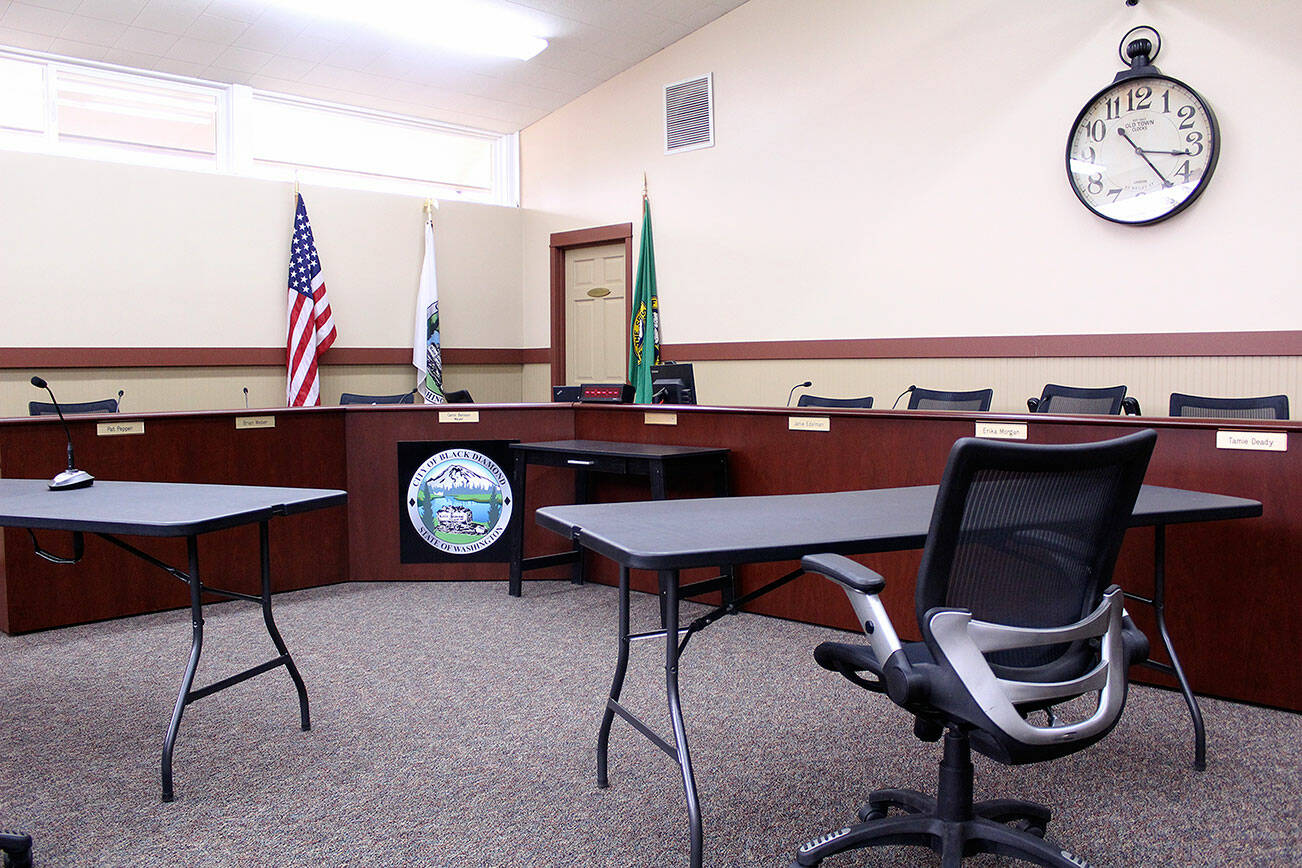Will Black Diamond repeal its eight year-old marijuana ban?
It’s been more than a decade since I-502 was passed and it became legal to buy bud and roll a doobie, but Black Diamond has kept marijuana retail stores, processors, and grow operations outside its borders since passing a ban in 2015.
“For a city of our size, that was a very prudent decision. Nobody really knew what was going to happen 10 years ago and for a small community, I can see the thought behind all that,” said Councilmember Debbie Page during the May 11 workshop. “Now we have 10 years-plus of [I]-502 experience, we have data that we will be taking a look at that supports the economic impact to a city, and then we can talk about some of the other issues that I am sure will come up as we navigate this from code updates to public safety and all of that.”
The City Council started talking about potentially repealing the ban in early 2021, but it appears the conversation is only now getting traction in light of the Liquor and Cannabis Board’s (LCB) Social Equity Program. The program aims to award marijuana grow, processing, and retail licenses to individuals “disproportionately impacted by the enforcement of cannabis prohibition laws” sometime in the future (the application window closed last April).
In short, this means Black Diamond has another chance to bring a marijuana retail shop inside city limits — and with it, excise tax dollars for its coffers.
“In a competitive business market, it would be a real advantage to a business to be able to come to Black Diamond in the retail cannabis marijuana space and have an opportunity to become part of the community,” Page said, noting that as a business coach, she has worked with people involved in the marijuana industry and knows many of the ins-and-outs of the business. Page later clarified via email she currently has no clients directly or adjacently involved in cannabis.
While cash can definitely be a major motivator — the city of Buckley, with its two marijuana retail shops, was provided between $50,000 and $100,000 in marijuana excise taxes every year between 2016 and 2022, according to the LCB, plus sales tax — many council members want to make sure a local pot shop is more than just a corner store.
“I would want us to be mindful of not only opening the business, but what kind of community we are bringing along with the business,” said Councilmember Kristiana de Leon.
How the city could work with a marijuana retailer is very much still in the air, as the city would need to determine where a shop can even open in town if the council decides to lift the ban.
Placement could be particularly tricky, as the council will need to decide what sort of buffer it wants between a pot shop and areas where children congregate; marijuana retailers are required by the state to be 1,000 feet away from schools and playgrounds, but Black Diamond can determine its own buffers, with a minimum of 100 feet, for how far it needs to be from recreation centers, child care centers, parks, public transit centers, libraries, and game arcades.
At this time, council members had many questions about what constitutes as a child care center — for example, do churches count? And if not, should the council include a buffer for churches?
Zoning is also an issue on many fronts — does the council allow a marijuana shop open in a Community Commercial Zone or the Town Center, putting the business near state Route 169? Or the Business/Industrial Park Zone or Industrial Zone, located away from the main thoroughfare through town?
“If you’re going to lift the prohibition… given our current businesses and given our current facilities… do we have enough space for a cannabis retail [store] and if we don’t, do we need to expand the zone, do we need to move it around, do we need to change the boundaries?” City Attorney David Linehan asked the council. “Those are the kinds of questions that’ll have to be answered.”
These conversations, which will be taken up by the city’s Planning Commission before heading to the council, are coming at a time when Black Diamond is already revising its Comprehensive Plan.
A Comprehensive Plan is a document required by the state to outline a city’s various goals for population and economic growth in the next few decades.
As such, de Leon suggested this might be a good time to lay the groundwork for a new zone within Black Diamond, one that would be friendly to marijuana stores and other adult venues as a way to bring in tourists.
“We should probably at least consider what it looks like to go a little bit more into not just having a random dispensary off to the corner but possibly making this part of what could really drive people on their way to mountain to stay and enjoy some music or whatever the case might be,” she said.
While the council appeared at least warm to the idea of diving into this topic, a few concerns were brought up, like youth drug use and crime.
De Leon noted that youth substance abuse is mainly driven not by local marijuana shops, but other factors; the CDC lists parental substance use, mental health issues, lack of social connectedness, and family rejection as some of the more high-risk factors.
And as for crime, Councilmember Brad Douglass noted that any business coming into Black Diamond could bring crime, not just pot shops; Page added that marijuana retailers are required to have heavy security, which can dissuade crime from occurring at the shop or around the area.


